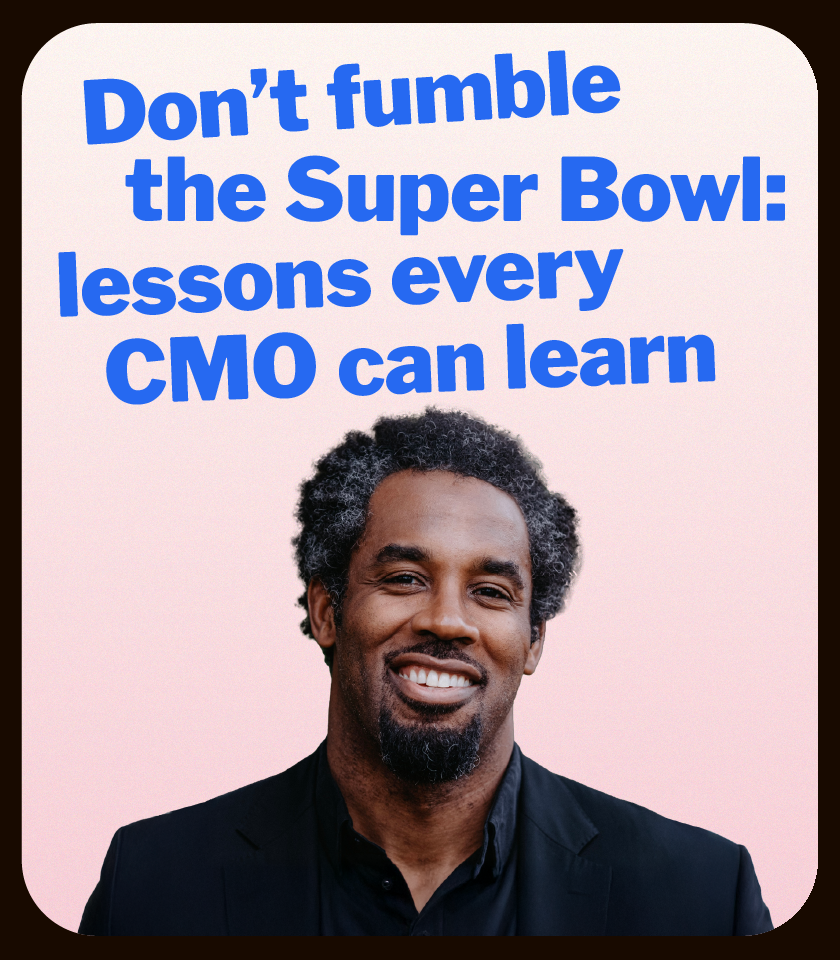Ahhh...the age-old question. What’s your purpose? At one time, the question only applied to personal growth and our journeys to find one true North Star. Perhaps it’s the shifting communication methods or the power of the vocal Gen Z consumer, but whatever the case, it’s now incumbent upon brands to share, not just sell, with purpose. It’s no longer a buzzword to apply to mission statements, but rather an expectation from consumers. So how can challenger brands make their mark in a crowded marketplace where every company is searching for their North Star? We tuned in to this year’s Adweek Challenger Brands Conference to learn the secrets behind the race for true purpose.
Conscious consumers are the new normal.
The conscious consumer is here to stay. A recent Mintel report outlining key trends for 2021 shared the following: “Companies cannot divorce their ethical and moral obligations from their business dealings unless they understand the consequences once they are exposed. It is expected that brands express their values loudly and continuously, and those that don't meet expectations will fade from relevance.”
To stay relevant in today’s competitive digitally-decisive world, challenger brands must clearly define their purpose and engage with the consumer through content, action and connection. A recent Forbes article on the topic reports that 92% of Gen-Z and 90% of Millennials are prepared to support a brand with purpose. This is no longer a fad, but rather a collective movement.
The collective movement is fueled by an intelligent demographic who will see through inauthentic or “virtue signaling” purpose statements. That’s why Banza, a fast-growing pasta company made from chickpeas, uses data to back their “healthier-for-you claims.” Leveraging the data around their purpose demonstrates expertise to the consumer and helps establish trust. Then, they created a continuous conversation with their followers by sharing recipes and content about the benefits of a healthier lifestyle. With the data and the consumer trust in tow, the company was able to continuously improve and expand its product offerings. In the midst of the 2020 global pandemic, they even launched pizza crust and mac-and-cheese options, a nod to the desire for comfort and health.
Sell the problem you are solving, not the product.
What is the problem you are solving for your target consumer? That problem is your true North Star. It is the starting point and your connection as your brand continues to scale up. Spanx founder Sara Blakely is widely known for her ability to be vulnerable and transparent, as well as her keen connection to the target audience’s problem. The Spanx purpose began when she realized women needed to feel great about themselves no matter what they were wearing. She cut the feet of her pantyhose to create an undergarment support product that is now a multi-million dollar clothing line, including must-have leggings, skirts, jeans, and more. Along the way, Blakely admits that staying attached to the problem and being vulnerable about how to solve it helped create a connection with her consumer. Yes, that means sharing failures and even celebrating them. That level of authenticity and her ability to make women feel better about themselves has made Spanx a household name.
Build it in, don’t bolt it on.
Procter and Gamble’s Global Marketing Officer, Marc Pritchard, is widely recognized for saying brands should be a “force for good and a force for change.” He’s a leader in the purpose-driven brand conversation and encourages challenger brands like Curiosity clients Native Deodorant to “build it in, don’t bolt it on.” That means your purpose should be ingrained in everything you do from the start, not an “add-on” to the company story based on trends and changing times.
Take Daily Harvest, a challenger brand focused on creating accessible distribution methods for sustainable foods. Founder Rachel Drori admits that she and her husband found their purpose for the company when she recognized that food is medicine, but there is a breakdown in the supply chain if healthy options are not easily accessible for all. So from the beginning, Drori and her husband made sustainable food accessibility their North Star, and they never swayed from it as they grew and innovated along the way. The company partners with fruit and vegetable farms to deliver healthy food choices right to your door. With a growing and vocal fan base, Daily Harvest has expanded its offerings to include plant-based almond milk and smoothies, all straight from the farm. They never swayed from their purpose and didn’t attempt to play outside their lane based on trending conversations. Rather, they stood by their original mission and expanded into it through consumer conversation. In return, they created a buzz in the healthy living space, witnessed exponential growth, and welcomed brand enthusiasts.
So what’s your true purpose, your North Star? At Curiosity, we’re lucky enough to work with several clients who have found theirs, from sustainable packaging promises from Native to climate change support from Charlie Banana. These brands and so many others are about more than selling a product. They are creating global change. The impact is a ripple effect marked by growth in retail stores, transparent consumer conversations and brand enthusiasts sharing a really great story.








